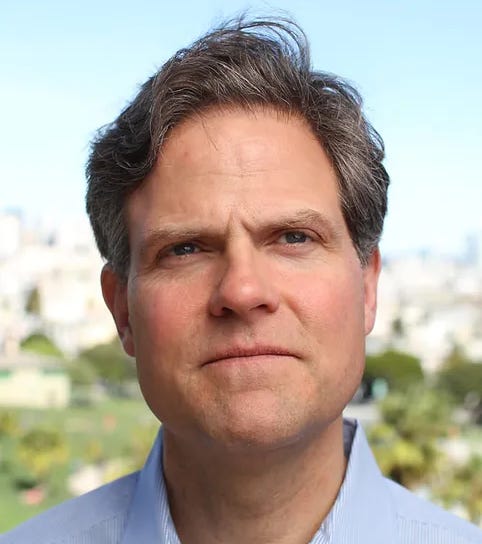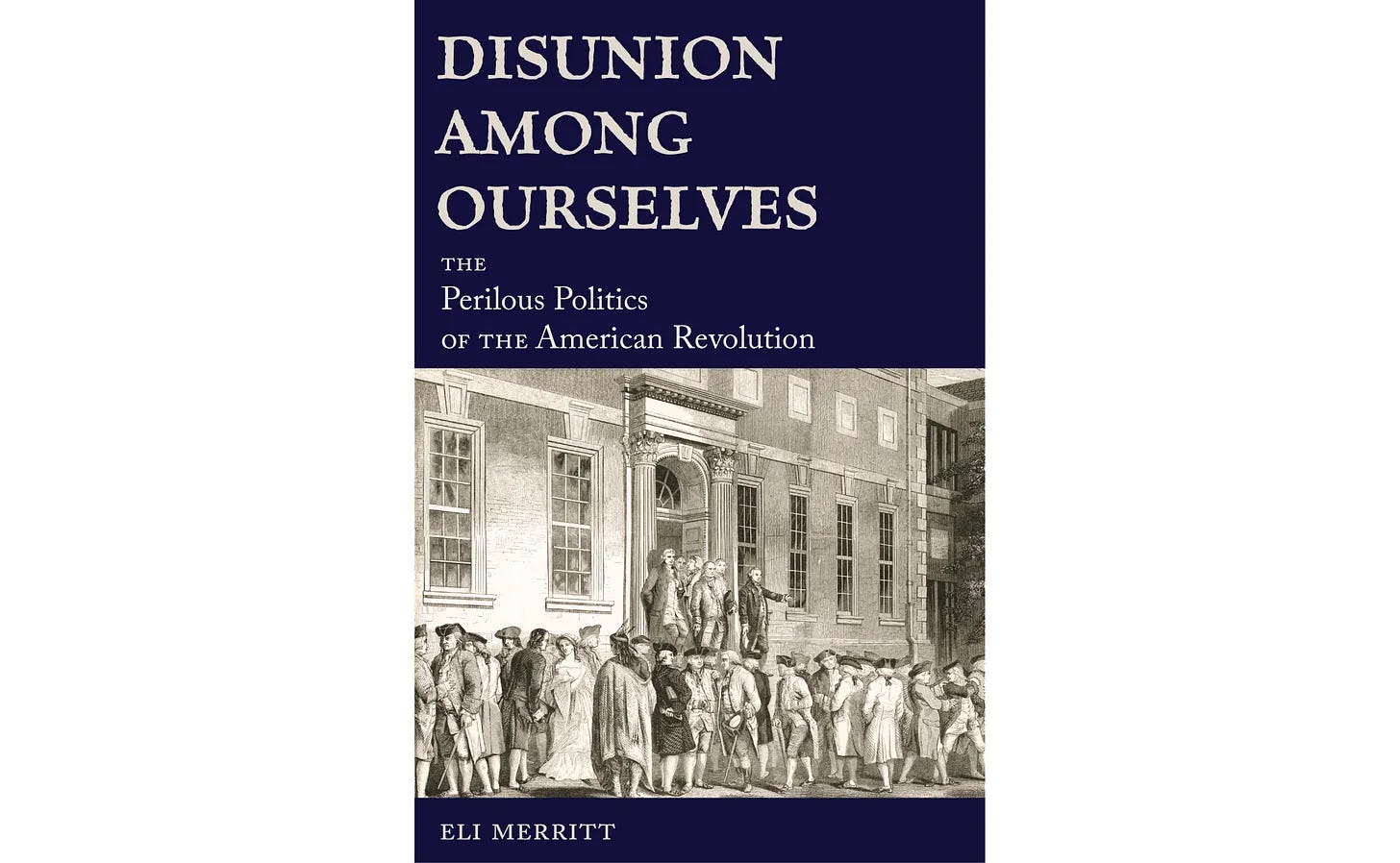'Give Me Liberty, or Give Me Death'
Today is the 250th anniversary of Patrick Henry's electrifying speech on the right of revolution as the remedy of last resort against tyranny
History must guide the reform of American democracy
According to John Adams, Patrick Henry was an unlikely hero.
The two men had met in September of 1774 at the First Continental Congress in Philadelphia, and while Adams felt a tenderness for the Virginian, he worried that Henry possessed neither the education nor the emotional stability necessary for leadership at a time of crisis.
“At fifteen he read Virgil and Livy,” Adams penned in his diary, “and has not looked into a Latin book since.”
Not only this, Henry had been abandoned by his father. “His father left him at that age,” Adams continued, “and he has been struggling through life ever since.”
Yet adversity, grief, depression, even trauma, sometimes act to light a fire in the soul of a citizen—and this was unquestionably the case with Patrick Henry.
‘His father left him at that age [15], and he has been struggling through life ever since.’
Diary of John Adams, 1774
Martial Law in Boston
Henry, thirty-eight years old, typically dressed in a suit of minister’s gray with a white cravat, first appeared at the extra-legal convention taking place at St. John's Church in Richmond on March 20, 1775.
Convened in the aftermath of the “Intolerable Acts,” the assembly aimed to steer liberty-loving Virginians to the next phase of resistance to tyranny.
The assault on American constitutional rights had been underway for a full ten years, since the adoption of the Stamp Act by Parliament in 1765. This contemptible measure outright robbed colonial assemblies of their inalienable right to lay taxes on their own constituents, breaking with hundreds of years of British tradition and law reaching back to the Magna Carta of 1215, the English Civil War, the Glorious Revolution, and the English Bill of Rights of 1689.
Now the same overweening Parliament, backed by a submissive King George III, had escalated its tyranny to an unthinkable extreme: the violent imposition of martial law on Boston and its commercial harbor out of vengeance for the tea incident in December of 1773.
Adversity, grief, depression, even trauma, sometimes act to light a fire in the soul of a citizen. This was unquestionably the case with Patrick Henry.
Remedy of Last Resort
At St. John's Church, Henry, Thomas Jefferson, George Washington, Richard Henry Lee, and some ninety other delegates spent three days on procedural matters and reviewing and approving the work of the Continental Congress.
Then, on the fourth day, Henry stood up and delivered a lightning bolt.
By all accounts, he was a magisterial speaker. Watching him on the floor of Congress, Silas Deane of Connecticut described Henry as “the completest speaker I ever heard . . . in a letter I can give you no idea of the music of his voice, or the high wrought, yet natural elegance of his stile & manner.”
Henry, arguing that Americans had done everything in their power thus far to reverse British oppression—peaceful petitions, civil disobedience, economic boycotts, and embassies to London to beg for mercy and justice—declared that the time had come for a free people to exercise the remedy of last resort: the right of revolution.
By invoking this right, Henry was not calling for war, but for armed self-defense against tyranny in the spirit of Algernon Sydney, John Locke, James Harrington, and the Glorious Revolution.
Henry was summoning history as a galvanizing force for liberty, hope, and “patriotism”: the memory of Britain’s two revolutions in the 17th century (the English Civil War and Glorious Revolution) and, more immediately, Americans’ own lived experience of oppression and violence ratcheted upon them by Parliament over the preceding ten years.
That Thursday, March 23, Henry roused his fellow Virginians to armed withdrawal from tyrannical government in the defense of constitutional freedom, equality and the right of the people to govern themselves.
Henry declared that the time had come for a free people to exercise the remedy of last resort: the right of revolution
They must act now, Henry exhorted. They must arm in self-defense. If not now, Henry queried, when would they find the courage?
Will it be when we are totally disarmed, and when a British guard shall be stationed in every house? Shall we gather strength by irresolution and inaction? Shall we acquire the means of effectual resistance by lying supinely on our backs and hugging the delusive phantom of hope, until our enemies shall have bound us hand and foot?
Americans must confront the “painful truth” of the tyranny engulfing them. They must break through their denial. They must cease being lambs while wolves invade their rights:
Is this the part of wise men, engaged in a great and arduous struggle for liberty? Are we disposed to be of the number of those who, having eyes, see not, and, having ears, hear not, the things which so nearly concern their temporal salvation?
“Forbid it, Almighty God!” Henry exclaimed.
‘The Holy Cause of Liberty’
Instead, Henry proclaimed, he would fight and, if necessary, die in “the holy cause of liberty.”
“I know not what course others may take,” he proclaimed famously, poignantly, “but as for me, give me liberty or give me death!”
Henry’s speech that day embodied a great coupling of ideas that the people of a free nation must never forget: The right of revolution is the guardian standing at the gate of liberty that alone possesses the power and genius to defeat tyranny.
Liberty, in other words, is an empty vessel without its fierce companion, the right of revolution, and, furthermore, this sacred right compels citizens to stand up like lions against tyranny, even at the cost of their own livelihoods and lives.
These are eternal verities of democratic freedom handed down to us by the founders of the nation.
American Commonwealth is a reader-supported publication
I’m grateful for your support
*******
Eli Merritt is a psychiatrist and historian who writes about the origins of our present political discontents and solutions to them
More articles by Eli Merritt
Books
Disunion Among Ourselves: The Perilous Politics of the American Revolution
The Curse of Demagogues: Lessons Learned from the Presidency of Donald J. Trump
To aid the educational efforts of American Commonwealth, take the next step:
Gift a subscription to a friend or family member
Share, Like, Comment, or Restack below:
Book Sources
Disunion Among Ourselves: The Perilous Politics of the American Revolution, by Eli Merritt
A Son of Thunder: Patrick Henry and the American Republic, by Henry Mayer
Lion of Liberty: Patrick Henry and the Call to a New Nation, by Harlow Giles Unger
Revolution in Virginia, by John E. Selby







Interesting and timely article. Your assertion that "Henry was not calling for war, but for armed self-defense against tyranny" reminds me of something that SCOTUS justices said about our Constitution. They explained that the true, profound meaning of the Second Amendment was not about merely keeping or merely bearing mere arms. It was about the right (and even the law of nature) of self-defense (or defence) and self-preservation. See, e.g., https://blackcollarcrime.substack.com/p/some-scotus-originalists-are-intentionally?r=30ufvh
ELI this is BRILLIANT!
Let me suggest using more DATED REASONING to create some HISTORICAL DRAMA.
DEMOCRATIC messaging on Trump tends to be BORING, and RAMBLING, with low IMPACT on folks, in my opinion. On the other hand, TRUMP has impact DAILY, with crazy idea and dynamics.
When will DEMOCRATS wise up with SIMPLE and DYNAMIC messaging.
IDEA CONTESTS open to the public might help. TNX MCH Harry